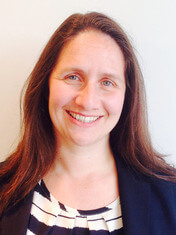Next year will mark 10 years since Good With Money was founded. In this time we have witnessed a seismic shift in public awareness of the connection between personal finance and the world around us.
Back in 2015, ethics and money were not – except for a motivated minority – considered even as bedfellows. Instead, they were viewed as contradictory objectives.
Being ‘good with money’ was considered relatively niche and providers with an ethical and sustainable approach at heart were few and far between. Most people bought financial products and services based on the pounds and pence cost to themselves, not any cost to the planet and the people on it. This wasn’t in general down to widespread apathy or selfishness, more a lack of understanding.
After all, traditionally the financial industry has long been a secretive place – most of us went along with the concept of ‘just give them your money and let them get on with it’. With profit the only priority for banks and other providers, they were free to use huge chunks of their customers’ money to fund industries that are destroying the planet and society such as fossil fuels, mining, weapons and tobacco – usually without the people it belongs to even knowing.
The merit of a financial product is no longer just whether it is the best value for money, or offers the highest return; it is also in its impact in the wider world.
Rapid change
 In recent years, the world has been changing at a rapid pace. Consumers are increasingly demanding more evidence of sustainability, social purpose and general good behaviour from the companies behind the products they buy.
In recent years, the world has been changing at a rapid pace. Consumers are increasingly demanding more evidence of sustainability, social purpose and general good behaviour from the companies behind the products they buy.
In 2017, David Attenborough’s Blue Planet II woke the world up to the plastic problem and a year later Greta Thunberg started the school climate strikes. The start of the coronavirus pandemic in 2020 then brought into sharp focus the link between the health of our planet and our own. The hosting of the COP27 climate change summit in Glasgow in 2022 made ‘fossil fuels’ and ‘net zero’ everyday terms, and increasing evidence of the climate crisis – with 2023 the hottest on record – makes the issue impossible to ignore.
Awareness of the connection between our personal finances and the issues we care about most continues to grow significantly. Putting your money to work sustainably is also no longer widely seen as being at odds with getting a good deal or making a profit on an investment. The opposite is increasingly proving to be true, as evidenced in the latest Good Investment Review.
An increasing desire to do good with money
Good With Money’s readership has grown exponentially alongside all these changes, reflecting an increasing desire from people to make conscious choices about where they put their money – it’s a desire fast turning into a demand. This includes where their banks invest their pay and savings, where their pensions are invested, where they borrow from and where they pay their insurance premiums.
The merit of a financial product is no longer just whether it is the best value for money, or offers the highest return; it is also in its impact in the wider world. There is a growing thirst for reliable information on this third aspect of our money – its power to bring about positive change.
The need for an independent rating
This has been met by a flurry of new positive impact apps and investment platforms as well as a shift in focus by established financial services providers to beef up their green credentials. The industry is racing to keep up with these changes, with much-needed new sustainability labels and other anti-greenwashing measures being brought in by the Financial Conduct Authority this year for investments.
At Good With Money, we have long recognised the need for a reliable and independent rating of the companies in this increasingly crowded – and confusing – space. It’s why, in 2017, we created the Good Egg mark. The Good Egg mark makes it easy for consumers to find a good deal for the planet and society, as well as their pocket, when choosing where to invest, save, borrow or bank.
Who can be a ‘Good Egg’?

The Good Egg is only awarded to companies that can prove they make a positive difference to the planet and society, as well as their customers and staff.
Impact is rated across three key areas; environmental, social, and industry/consumer, taking into account the size and history of the firm and its performance. Applications are assessed by specialist consultancy Ethical Screening, which puts together a detailed report. This is then reviewed by a panel of industry experts before a final decision is made. All the findings are available for consumers to see.
Which companies have been awarded a Good Egg?
There are currently eight Good Egg mark firms. These are: carbon analysis app Sugi, online pensions provider PensionBee, sustainable bank Triodos, Ecology Building Society, clean energy investment firm Thrive Renewables, and ethical financial advisers EQ Investors, BlueSphere Wealth and Path Financial.
You can find out more about the criteria Good Egg firms must meet here. Please get in touch if you think your company could be our next Good Egg.





